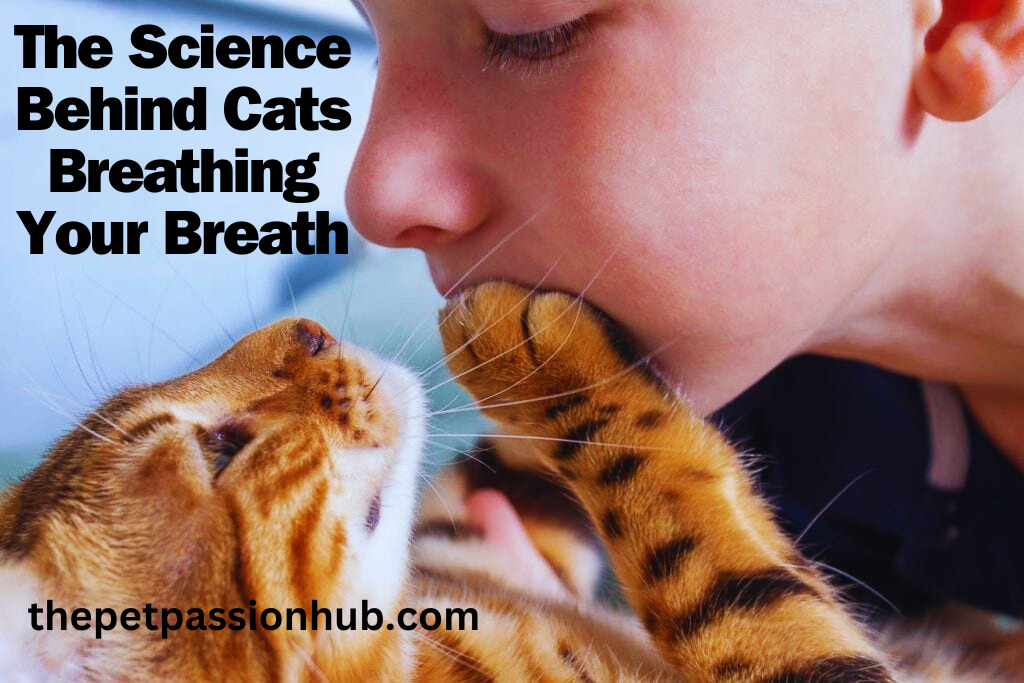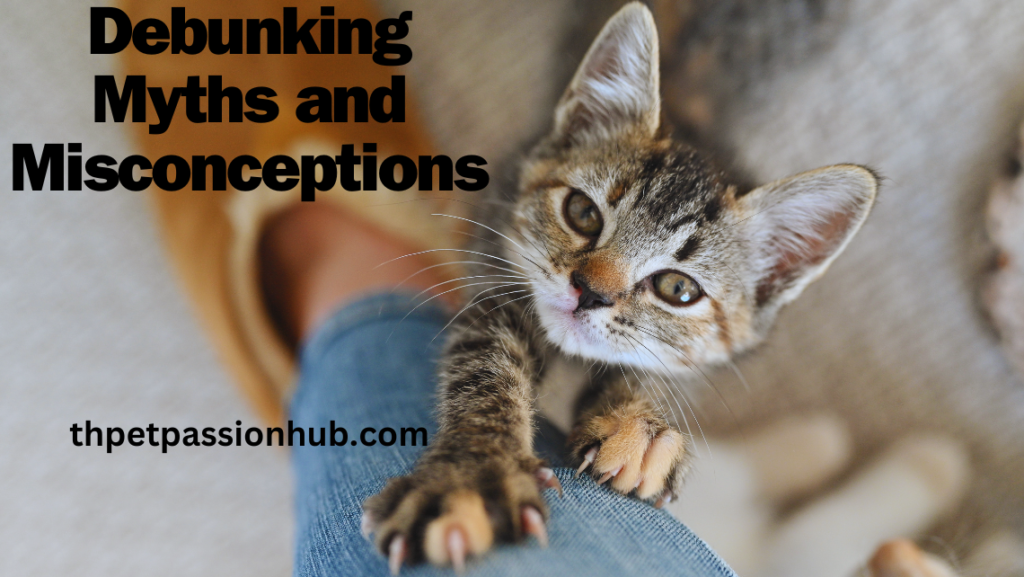Introduction
Have you ever looked into your cat’s eyes and felt a strange connection. As if they were closer to you than any other creature?
Well, it turns out there may be more to that feeling than meets the eye. For years, cat owners have puzzled over the mysterious behavior of their feline friends.
Why do cats seem so drawn to breathing in their human companion’s breath?
In this groundbreaking article, we delve into the surprising reasons behind this puzzling phenomenon. And unveil the hidden secrets of feline behavior. Surprising Reasons Cats Breathe Your Breath.
Feline Respiratory System: Understanding the Basics
The behavior of cats breathing in their owners’ breath has long puzzled and intrigued animal behaviorists.
Evolutionary explanations for this behavior suggest that it may have roots in a survival instinct.
It’s possible that cats, as solitary hunters in the wild, developed the habit of sniffing their prey’s breath to gather information about their health and state of mind.
In the case of domesticated cats, this behavior could be a carryover from their ancestors’ hunting instincts. Which prompted them to closely monitor the conditions of their potential prey.
Furthermore, from an evolutionary standpoint, cats may also be drawn to human breath as a source of comfort and security.
As kittens rely on the scent and warmth of their mothers for survival. Domestic cats might seek out their owners’ breath as a way to feel safe and reassured.
This deep-seated association with safety and nourishment could explain why they exhibit this intriguing behavior even after being fully domesticated.
These evolutionary insights shed light on the complex relationship between humans and felines. Offering a new understanding of our furry companions’ seemingly mysterious behaviors. Surprising Reasons Cats Breathe Your Breath.
The Science Behind Cats Breathing Your Breath
Cats, with their enigmatic and inscrutable nature, have long fascinated humans.
Their intricate psychological and emotional motivations have often eluded our understanding, leading to a multitude of myths and misconceptions.

However, recent research has shed light on the hidden complexities of feline psychology, unveiling surprising insights into their motivations.
It appears that cats’ habit of breathing your breath carries deep psychological meaning – it’s an expression of trust and affection.
Comparable to how human infants seek comfort through proximity to their parents. Cats breathe your breath as a way to establish security and closeness.
Moreover, this behavior reflects the emotional depth of cats’ attachment to their human companions.
Their keen sense of smell allows them to recognize your unique scent. Fostering a bond that goes beyond mere physical presence.
Understanding these psychological underpinnings can enhance our appreciation for the depth of connection we share with our feline friends. And inspire us to nurture these complex emotional ties through compassion and care.
This newfound awareness not only demystifies certain cat behaviors. But also highlights the profound emotional intelligence residing within our seemingly aloof furry companions.
Why Do Cats Smell Your Breath? 7 Reasons for This Behavior
Evolutionary Explanations for this Behavior
The health implications and risks for humans associated with close contact with cats are often underestimated.
While it’s adorable to have a feline friend snuggled up on your chest, it’s important to be aware of potential health concerns.
One major risk is the transmission of zoonotic diseases, such as toxoplasmosis, which can be particularly dangerous for pregnant women and individuals with compromised immune systems.
Additionally, constant exposure to cat dander can exacerbate allergies and trigger asthma attacks in susceptible individuals.
Furthermore, cats’ saliva may carry bacteria that could lead to skin infections if a scratch or bite occurs.
It’s crucial for cat owners to maintain good hygiene practices when interacting with their furry companions in order to minimize these risks.
Despite the joys of having a cat as a pet, being informed about these potential health implications is essential for both the wellbeing of humans and their beloved feline friends.
Psychological and Emotional Motivations of Cats
Misconceptions about cats and their behavior have circulated for centuries, perpetuating myths that can mislead cat owners.
One common misconception is that cats steal your breath while you sleep. This belief has no scientific basis and can be attributed to superstition rather than reality.
Cats may exhibit curious behavior around sleeping individuals, but it’s more likely due to their natural instinct to seek warmth and comfort.

Another myth worth debunking is the belief that all cats are aloof and independent creatures who don’t crave human interaction.
In reality, many cats form strong bonds with their owners and enjoy affectionate interactions.
By debunking these myths, we can foster a better understanding of feline behavior and provide more enriching experiences for both cats and their human companions.
Can I Give My Cat his Antibiotic 2 Hours Early? Ultimate Guide
Health Implications and Risks for Humans
In conclusion, the fascinating connection between cats and humans is a dynamic interplay of mutual understanding and mysterious energy.
Cats’ instinctual behavior, such as breathing your breath, may hold deeper significance beyond mere comfort-seeking.
It’s an expression of trust and affection that transcends language barriers, fostering a unique bond with their human counterparts.
This symbiotic relationship taps into the ancient history of cat domestication and our shared evolution, highlighting the intricacies of our interconnectedness.
Moreover, embracing this connection enriches our lives in unexpected ways, offering profound insights into empathy and companionship.
The reciprocal nature of this bond invites us to appreciate the subtle nuances of feline behavior while recognizing the emotional intelligence they bring to our lives.
By delving into the enigmatic world of cats’ interactions with humans, we uncover a compelling narrative that resonates deeply within us as fellow sentient beings navigating life’s complexities together.
Debunking Myths and Misconceptions
Many pet owners believe the myth that a cat breathing on them is a sign of affection or even an attempt to steal their breath.
However, this is simply not true. Cats often breathe on humans as a way to gather information about their surroundings, including the scent and temperature of the air.
This behavior can be attributed to their keen sense of smell and instinctual need to gather information about their environment.

Another common misconception is that cats breathe on humans as a means of control or dominance. In reality, this behavior is more likely a result of seeking comfort and security from their human companions.
Cats are known for forming deep bonds with their owners, and breathing in close proximity may be a way for them to establish trust and connection.
It’s important for cat owners to understand the true reasons behind their feline friends’ behaviors.
By debunking these myths, we can deepen our understanding of the unique ways cats communicate and express themselves through surprising connections like breath.
Conclusion: Embracing the Fascinating Connection between Cats and Humans
In conclusion, the intimate connection between cats and humans goes beyond mere companionship. Surprising Reasons Cats Breathe Your Breath.
The fascinating phenomenon of cats breathing their owner’s breath reveals a profound level of trust and affection that transcends verbal communication.
This unique behavior underscores the deeply ingrained bond between felines and their human counterparts, shedding light on the intricate dynamics of this relationship.
Furthermore, embracing this captivating connection offers new insights into understanding cat behavior and emotions.
By acknowledging the significance of cats breathing their owner’s breath, we can recognize the depth of their attachment to us as well as gain an appreciation for their desire to be close to us.
This realization opens up a world of possibilities for enhancing our interactions with feline companions, deepening our mutual understanding, and nurturing an even stronger bond based on trust and reciprocity.
Embracing this mysterious connection can truly enrich our lives as pet owners while allowing us to marvel at the enigmatic nature of these beloved creatures.
FAQs
- Why do cats breathe on our faces?
Cats may breathe on your face as a way to show affection and bond with you. - Is it safe for cats to breathe near my face?
Yes, it is generally safe for cats to breathe near your face, as long as they are healthy and not showing any signs of illness. - Does cat breath have any health benefits?
Some people believe that inhaling cat breath can have calming and stress-relieving effects, but scientific evidence is limited. - Why does my cat breathe on me when I’m sleeping?
Your cat may be seeking warmth or comfort by breathing on you while you sleep. - Can a cat’s breath transmit diseases to humans?
In general, the risk of disease transmission from a cat’s breath to humans is low, but it’s still important to practice good hygiene around pets. - Should I be concerned if my cat breathes heavily on me?
If your cat suddenly starts breathing heavily or panting excessively, it could be a sign of an underlying health issue and should be evaluated by a veterinarian. - What can I do if I don’t like my cat breathing on me?
You can gently redirect your cat’s behavior by offering them alternative sources of warmth and comfort, such as a cozy bed or blanket. - Are there any cultural or Surprising Reasons Cats Breathe Your Breath?
Some cultures and folklore have attributed mystical or magical qualities to cats’ ability to steal human breath, but these beliefs are not based in scientific fact.
